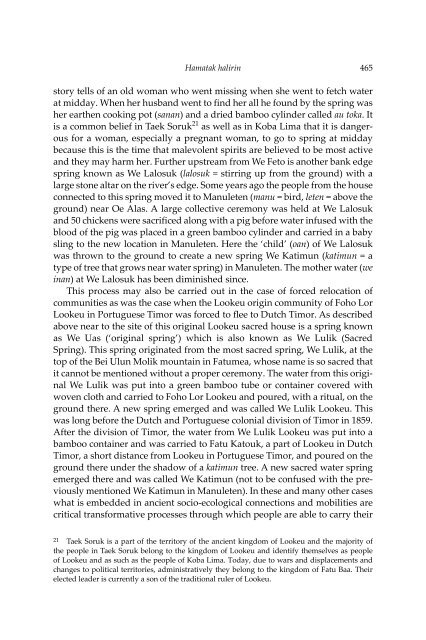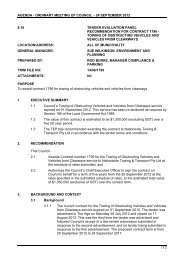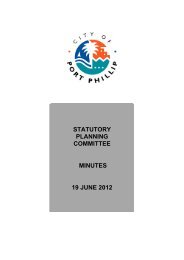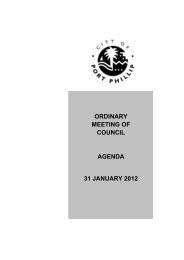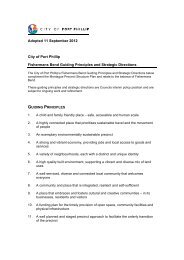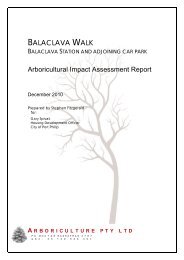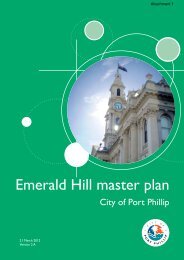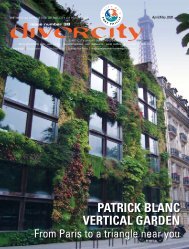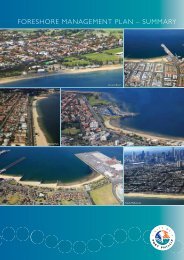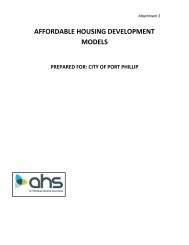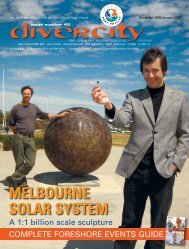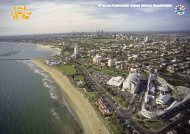Create successful ePaper yourself
Turn your PDF publications into a flip-book with our unique Google optimized e-Paper software.
Hamatak halirin 465<br />
story tells <strong>of</strong> an old woman who went missing when she went to fetch water<br />
at midday. When her husb<strong>and</strong> went to find her all he found by the spring was<br />
her earthen cooking pot (sanan) <strong>and</strong> a dried bamboo cylinder called au toka. It<br />
is a common belief in Taek Soruk 21 as well as in Koba Lima that it is dangerous<br />
for a woman, especially a pregnant woman, to go to spring at midday<br />
because this is the time that malevolent spirits are believed to be most active<br />
<strong>and</strong> they may harm her. Further upstream from We Feto is another bank edge<br />
spring known as We Lalosuk (lalosuk = stirring up from the ground) with a<br />
large stone altar on the river’s edge. Some years ago the people from the house<br />
connected to this spring moved it to Manuleten (manu = bird, leten = above the<br />
ground) near Oe Alas. A large collective ceremony was held at We Lalosuk<br />
<strong>and</strong> 50 chickens were sacrificed along with a pig before water infused with the<br />
blood <strong>of</strong> the pig was placed in a green bamboo cylinder <strong>and</strong> carried in a baby<br />
sling to the new location in Manuleten. Here the ‘child’ (oan) <strong>of</strong> We Lalosuk<br />
was thrown to the ground to create a new spring We Katimun (katimun = a<br />
type <strong>of</strong> tree that grows near water spring) in Manuleten. The mother water (we<br />
inan) at We Lalosuk has been diminished since.<br />
This process may also be carried out in the case <strong>of</strong> forced relocation <strong>of</strong><br />
communities as was the case when the Lookeu origin community <strong>of</strong> Foho Lor<br />
Lookeu in <strong>Port</strong>uguese Timor was forced to flee to Dutch Timor. As described<br />
above near to the site <strong>of</strong> this original Lookeu sacred house is a spring known<br />
as We Uas (‘original spring’) which is also known as We Lulik (Sacred<br />
Spring). This spring originated from the most sacred spring, We Lulik, at the<br />
top <strong>of</strong> the Bei Ulun Molik mountain in Fatumea, whose name is so sacred that<br />
it cannot be mentioned without a proper ceremony. The water from this original<br />
We Lulik was put into a green bamboo tube or container covered with<br />
woven cloth <strong>and</strong> carried to Foho Lor Lookeu <strong>and</strong> poured, with a ritual, on the<br />
ground there. A new spring emerged <strong>and</strong> was called We Lulik Lookeu. This<br />
was long before the Dutch <strong>and</strong> <strong>Port</strong>uguese colonial division <strong>of</strong> Timor in 1859.<br />
After the division <strong>of</strong> Timor, the water from We Lulik Lookeu was put into a<br />
bamboo container <strong>and</strong> was carried to Fatu Katouk, a part <strong>of</strong> Lookeu in Dutch<br />
Timor, a short distance from Lookeu in <strong>Port</strong>uguese Timor, <strong>and</strong> poured on the<br />
ground there under the shadow <strong>of</strong> a katimun tree. A new sacred water spring<br />
emerged there <strong>and</strong> was called We Katimun (not to be confused with the previously<br />
mentioned We Katimun in Manuleten). In these <strong>and</strong> many other cases<br />
what is embedded in ancient socio-ecological connections <strong>and</strong> mobilities are<br />
critical transformative processes through which people are able to carry their<br />
21 Taek Soruk is a part <strong>of</strong> the territory <strong>of</strong> the ancient kingdom <strong>of</strong> Lookeu <strong>and</strong> the majority <strong>of</strong><br />
the people in Taek Soruk belong to the kingdom <strong>of</strong> Lookeu <strong>and</strong> identify themselves as people<br />
<strong>of</strong> Lookeu <strong>and</strong> as such as the people <strong>of</strong> Koba Lima. Today, due to wars <strong>and</strong> displacements <strong>and</strong><br />
changes to political territories, administratively they belong to the kingdom <strong>of</strong> Fatu Baa. Their<br />
elected leader is currently a son <strong>of</strong> the traditional ruler <strong>of</strong> Lookeu.


